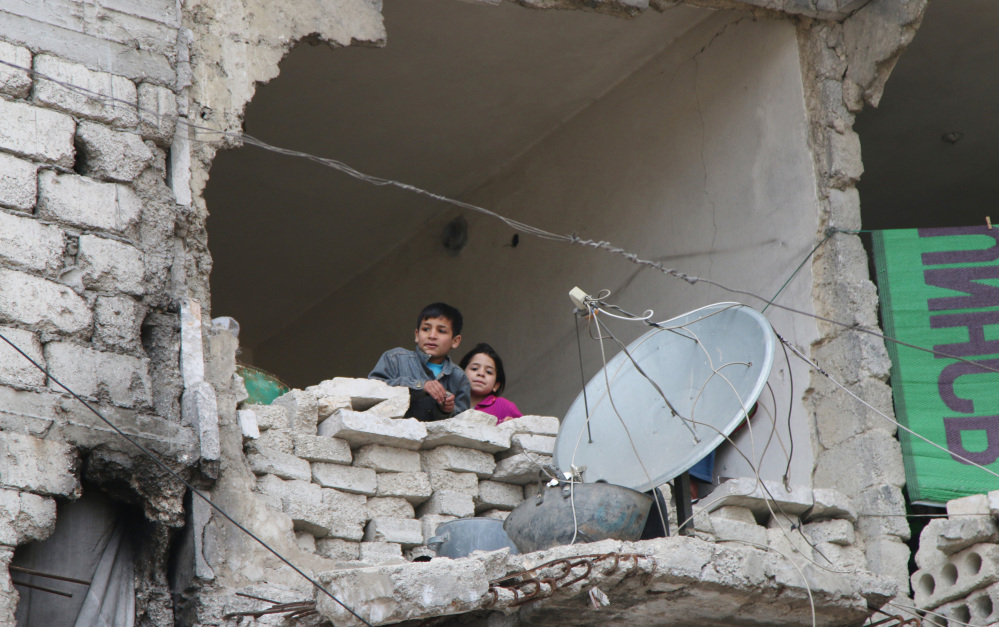Though opposition leaders welcome a truce, they worry Russia will continue bombing them.
GAZIANTEP, Turkey — Syrian opposition groups cautiously welcomed a truce deal Friday aimed at halting the bloodshed in Syria, but raised worries that it leaves room for Russia to continue a bombing campaign to aid Syria’s government. The international agreement announced in Munich – backed by the United States, Russia and others – calls for a “temporary cessation” of hostilities to begin in a week.
It also calls for the delivery of humanitarian aid to besieged communities on both sides of the conflict and the resumption of stalled peace talks in Geneva later this month.
The deal marks the first attempt to bring about any kind of truce since a U.N.-backed cease-fire in 2012 collapsed hours after it went into effect.
Hundreds of thousands of people have subsequently died, more than half of Syria’s pre-war population has been displaced, a quarter have fled the country, and the Islamic State has emerged to present a global threat, adding new urgency to the quest for a solution to the region’s bloodiest war.
Russia’s military intervention last year, meanwhile, has tilted the balance of power on the ground in favor of President Bashar Assad.
Russian warplanes resumed their bombardment of rebel positions across Syria within hours of the deal, striking areas in the countryside around the northern city of Aleppo in support of a 10-day-old government offensive to lay siege to the city.
In Brussels, Russian Foreign Minister Sergei Lavrov told reporters that Moscow would continue its attacks against groups including the Islamic State.
The Russians have repeatedly said that they consider a number of Islamist groups fighting within the opposition to be “terrorist,” and have used this formulation to justify air attacks that have largely targeted the anti-Assad opposition.
Under the agreement, the United States and Russia will chair a task force to adjudicate questions about where and when bombing is permitted.
In Syria, residents of the areas of northern Aleppo have born the brunt of the recent bombing campaign. Many expressed dismay that the cease-fire would not come into effect for a week.
“Within a week everything will have been destroyed,” said Mohammed Najjar, a resident of the town of Marae, who on Friday joined an exodus of tens of thousands of civilians toward the Turkish border because the bombing had become too intense.
Details of how the truce would be implemented remain to be worked out, and the deal is subject to the approval of the factions on the ground, who were not party to the final accord reached by Russia, the United States and the European and Middle Eastern powers.
Syrian rebels also questioned how the international community would enforce the truce, given that Russian warplanes will be allowed to continue bombing the terrorist groups Islamic State and Jabhat al-Nusra.
Send questions/comments to the editors.



Success. Please wait for the page to reload. If the page does not reload within 5 seconds, please refresh the page.
Enter your email and password to access comments.
Hi, to comment on stories you must . This profile is in addition to your subscription and website login.
Already have a commenting profile? .
Invalid username/password.
Please check your email to confirm and complete your registration.
Only subscribers are eligible to post comments. Please subscribe or login first for digital access. Here’s why.
Use the form below to reset your password. When you've submitted your account email, we will send an email with a reset code.